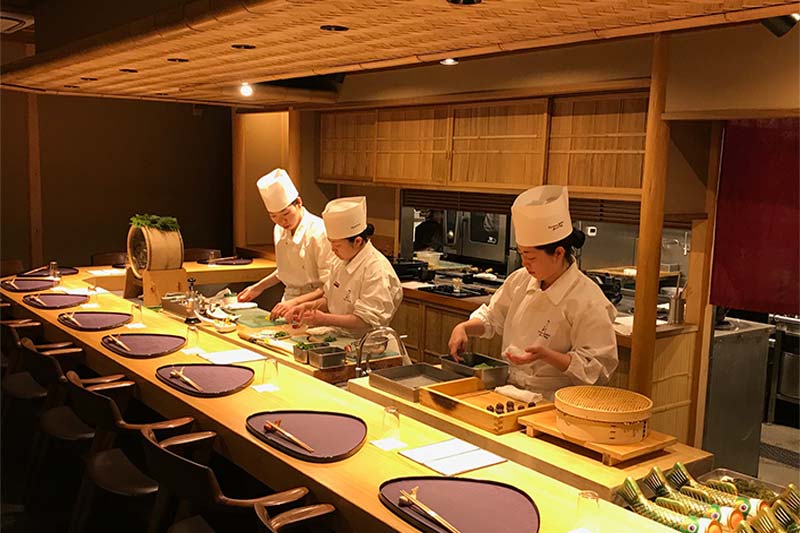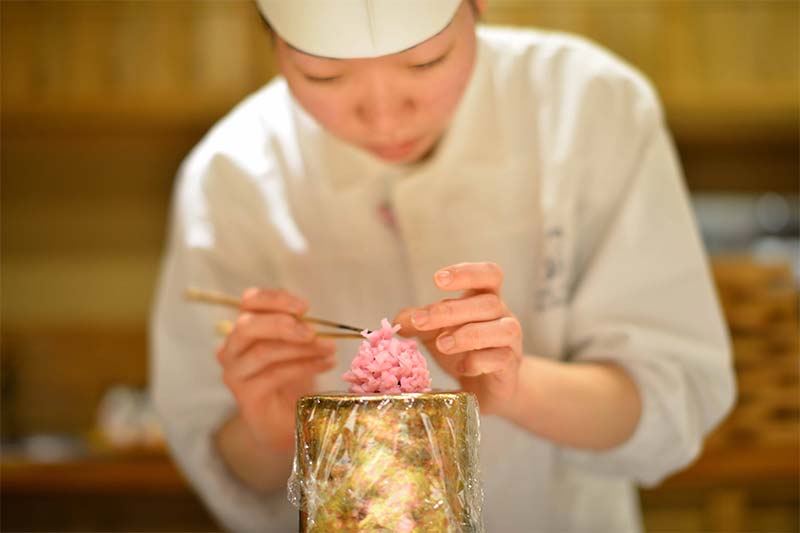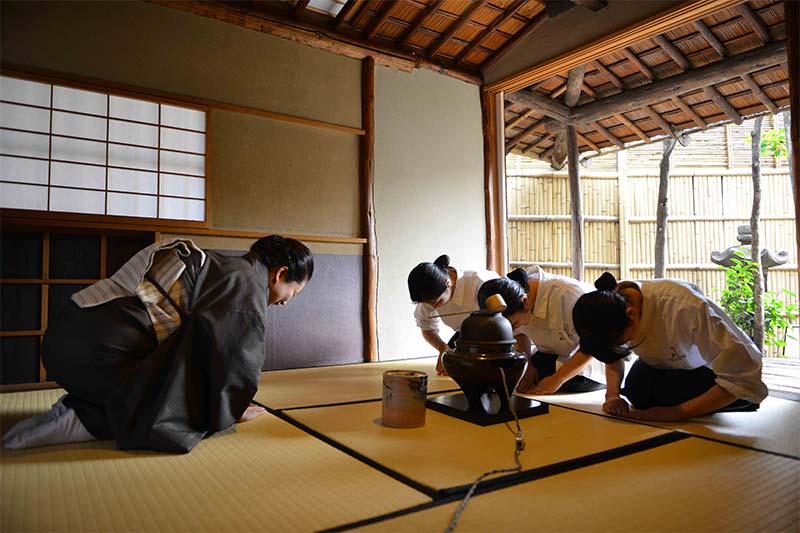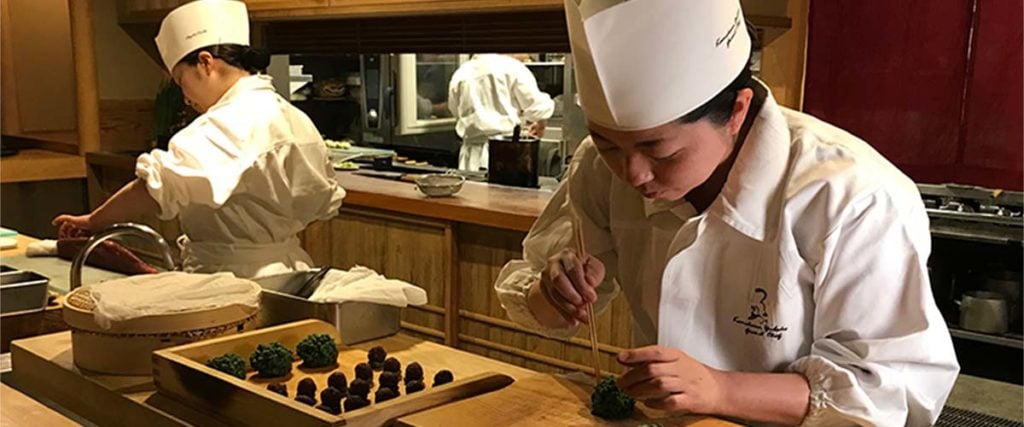Staffed entirely by a powerful, all-female team of chefs, Kaiseki restaurant Tsurutokame is fighting for industry-wide gender equality in the heart of Tokyo. Read their story here.
In their 30 years running restaurants in Japan, including eight of their own in Tokyo and three in Tochigi Prefecture, Harumi Mikuni and her husband Osamu Mikuni had never come across a female Head Chef. In 2016, they decided to do something about that, opening Tokyo’s first-ever solely female staffed restaurant Tsurutokame in the buzzy district of Ginza. Determined to give women the opportunity and training that a deeply traditional and widely-held restaurant culture was continuously locking them out of, their idea was to show Japanese diners that female chefs were capable of exactly the same outstanding cuisine that their male counterparts are famous for. Together with seven female chefs, some as young as 18, they’re taking on the most demanding of Japanese cuisine – Kaiseki, the traditional and prestigious multi-course cuisine treasured across the country. Two years on, they have served dinner to Prime Minister Shinzo Abe and gained an avid following who come to them less for their story than for their scrumptious cuisine. Harumi walked Hive Life through their journey.

For Harumi, it was the distinct lack of opportunity available to ambitious female chefs in Japan that prompted her to start her female-only restaurant – one that seats 14 guests around an open kitchen, leaving no room for error. In her experience running restaurants for over three decades, the perception of the kitchen as a male domain was so entrenched that she simply could not imagine a work environment in which a woman could possibly lead a team of chefs. As she told Forbes Magazine when they came calling, “They won’t respect and obey the leader if she is a woman. They’ll say, ‘Yes, Ma’am’ but they’re not going to look into your eyes and actually mean it. It’s hard to change this mindset immediately. It’s not even seen as discrimination; it’s seen as natural.” So, she created a restaurant entirely staffed by women to circumnavigate the problem.
You might also like From Japan to Taiwan, The Kaiseki King Breaking Rules In A Whole New Way
“We thought these women could make the most of their opportunities and sense as a chef by creating a restaurant exclusively run by women,” says Harumi of the idea behind Tsurotokame. And, in addition to giving women the chance to lead, she also wanted to smash the barriers to entry facing them in the high-end restaurant world – not least because many of them weren’t even being taught the skills necessary to compete at that level. “The challenge for female chefs is that it is harder for them, in comparison to male chefs, to fully understand the concept of the traditional culinary world in Japan.” Excluded from much of traditional food culture, they have to battle old superstitions, including the idea that “a woman’s body temperature is higher than men’s, so the fish gets warm if a female chef makes sushi.”

At Tsurutokame, the opposite is the case. Walk through its slatted entrance in Tokyo’s Ginza district and you’ll find a calm oasis made up of a few tables atop tatami mats and an open counter, behind which you’ll see an entirely female team. Trained in an apprentice-style scheme attached to the restaurant itself, the whole approach is holistic. “We believe that the most important thing when hiring a chef for our restaurant is the balance of mind, body and technique. In Japan, it is called “心技体 Shin (mind) – Gi (technique) – Tai (body),” explains Harumi. To learn their craft, chefs sleep in dormitories, living and breathing restaurant life from morning until night whilst they work there. “There are many things one can learn as a person by living with other people in dormitories before we learn the skills from our seniors,” she says. Alongside culinary techniques, the team attend tea ceremonies and calligraphy lessons before heading on to food preparation and ending their day serving the restaurant’s customers. “By spending time with other people, we believe that they will learn to respect others and make decisions based on caring for others’ needs. It is helpful for them to learn this way as they will naturally gain better understanding and consideration for others such as when to serve a dish by looking at the customers’ actions and anticipating their needs,” Harumi explains.

It’s a training programme that has worked. Having tipped their cap at Kaiseki, Japan’s most intricate and revered cuisine, Tsurutokame’s chefs are more than delivering, with dishes that have drawn the attention of the country’s own President as well as magazines like Forbes and scores of happy customers – many of whom come back time and time again. Still, for Harumi, it’s less the accolades than the simple fact of giving people a chance that gives her the most satisfaction. “Our chefs may not have the most established reputation for their cooking skills but we believe that their passion, hard work and humble approach are highly appreciated by our customers. Regardless of age, anyone who likes Japanese food has the chance if she has a humble attitude and motivation.”
Related Articles
Breaking Stereotypes With Female Bartender Amanda Wan





